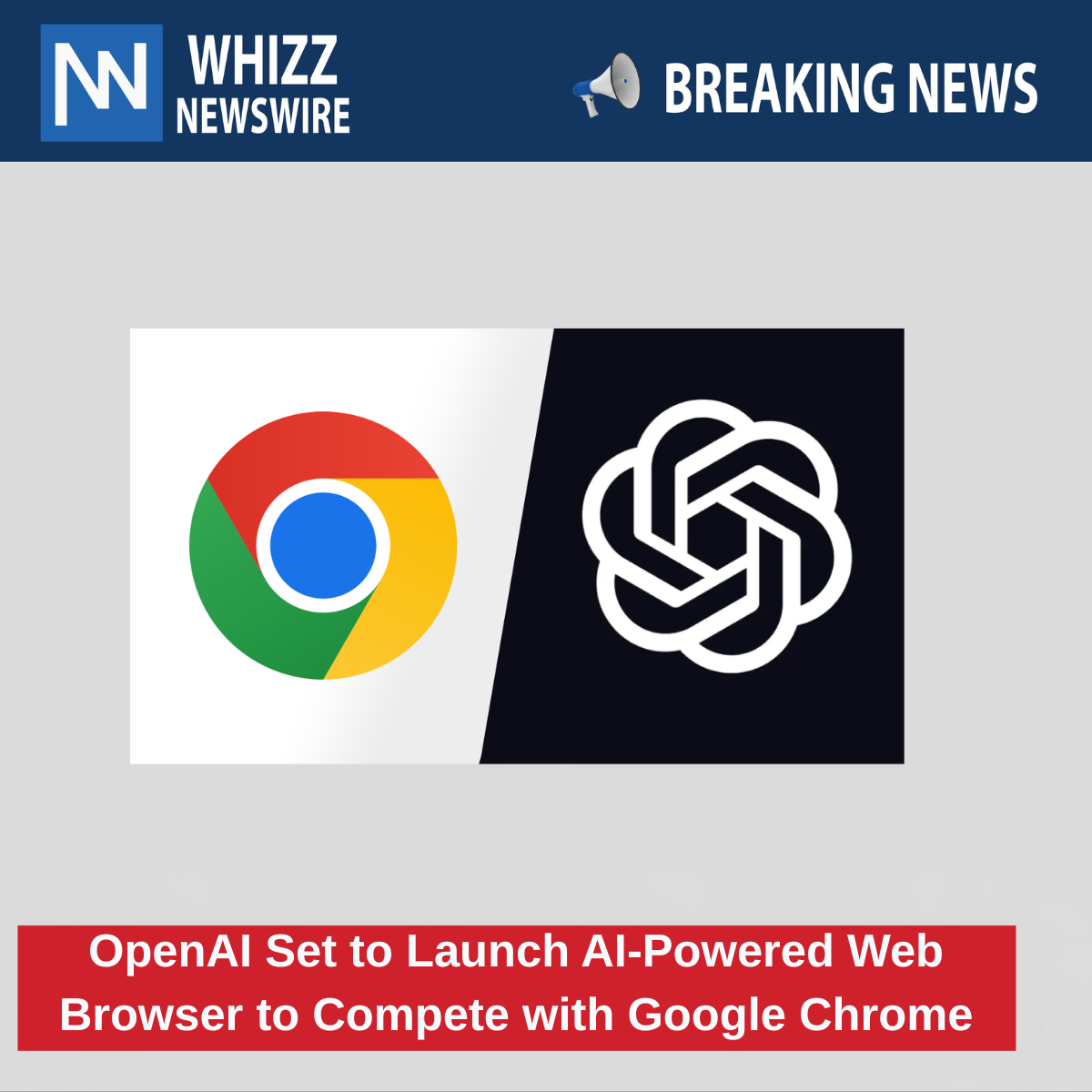OpenAI is preparing to launch a brand-new web browser that could shake up the dominance of Google Chrome. According to sources close to the project, the browser will be powered by artificial intelligence and may hit the market in the coming weeks.
A New Way to Browse the Web
OpenAI’s upcoming browser is designed to make web browsing smarter and more interactive. Instead of just clicking through websites, users will be able to interact directly through a built-in AI chat feature — much like ChatGPT. This could change how people find information, complete tasks, and interact with online content.
Experts say this browser could challenge the way we’ve used the internet for years by turning it into a more personalized and efficient experience.
Gaining Direct Access to User Data
One of the key reasons OpenAI is entering the browser space is to gain more control over user data. Chrome, currently used by more than 3 billion people, helps Google collect data that fuels its ad business. With a browser of its own, OpenAI could tap into similar data to improve its services and AI models.
If even a portion of ChatGPT’s 500 million weekly users adopt the new browser, it could significantly disrupt Google’s grip on digital advertising.
Built on Chromium — Google’s Own Engine
Interestingly, OpenAI’s browser is being developed on top of Chromium, the same open-source platform that powers Google Chrome. Chromium is also used by other browsers like Microsoft Edge and Opera. While OpenAI is using Google’s technology foundation, it’s building a completely new experience layered with AI features.
By using Chromium, OpenAI ensures its browser will be fast, secure, and compatible with most websites — but with the added power of AI.
Taking Tasks Off Your Hands
The AI features in OpenAI’s browser aim to do more than just help you search. The goal is to let users hand off routine tasks like filling out forms, booking reservations, or summarizing content. This idea of AI agents working on your behalf could change how people interact with websites.
Rather than opening several tabs and searching manually, users can simply ask the browser to complete actions for them — saving time and effort.
Why This Browser Matters
OpenAI’s decision to build a full browser, instead of creating a plugin for existing browsers like Chrome or Safari, is a strategic move. It gives the company full control over how data is collected and how AI features are integrated. This could lead to faster improvements and a more seamless user experience.
It also aligns with OpenAI’s bigger goal of embedding AI into everyday life — both for work and personal use.
Tough Road Ahead: Competing with Chrome
While OpenAI’s browser sounds promising, entering the market won’t be easy. Google Chrome holds more than 66% of the global browser market, according to data from StatCounter. Apple’s Safari is a distant second with just 16%.
Even with OpenAI’s popularity, it will take time and effort to convince users to switch. However, ChatGPT’s loyal user base and business customers — more than 3 million paying businesses — could give OpenAI a strong starting point.
Rising Competition in AI Browsers
OpenAI isn’t the only player in the AI browser race. Other companies like Perplexity have launched AI-powered browsers that can perform tasks and summarize the web. Startups like The Browser Company and Brave are also using AI to reshape how users explore the internet.
Still, none of these rivals have the scale or brand recognition that OpenAI brings with ChatGPT.
Backed by Strong Leadership and Talent
OpenAI has recruited top talent to lead its browser initiative. The company recently hired two former Google vice presidents who helped build Chrome in its early days. This shows OpenAI’s serious commitment to creating a world-class browser.
In April, an OpenAI executive even stated in court that the company would be interested in buying Chrome — if regulators force Google to sell it due to antitrust rulings. Although that’s unlikely to happen soon, it signals OpenAI’s ambition.
From ChatGPT to Browser and Beyond
This new browser is part of OpenAI’s wider plan to expand its ecosystem. In May, the company acquired a hardware startup co-founded by Jony Ive, the former chief designer at Apple, for $6.5 billion. That move shows OpenAI is not just focused on software but also looking to create AI-powered devices.
Now, with a browser in the works, OpenAI is aiming to become a one-stop AI hub for users — from chatting and working to browsing and shopping.
OpenAI’s entry into the web browser market is bold and full of potential. With AI at its core, the browser could make the internet smarter, more helpful, and more personalized. While Chrome’s dominance won’t be easy to break, OpenAI has a unique chance to disrupt the space by offering something truly different.
As the launch draws closer, one thing is clear: the battle for the future of web browsing is just beginning — and AI is leading the way.
For similar content visit here




